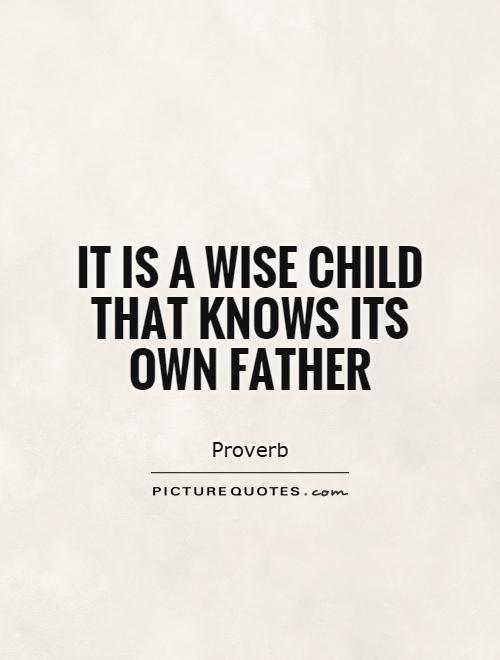It is a wise child that knows its own father

It is a wise child that knows its own father
The proverb "It is a wise child that knows its own father" holds a deep and profound meaning that transcends the literal interpretation of knowing one's biological father. At its core, this proverb speaks to the importance of self-awareness, discernment, and the ability to recognize and appreciate one's roots and heritage.In a literal sense, the proverb emphasizes the significance of knowing one's biological father and understanding the role that he plays in shaping one's identity and character. A wise child is one who is aware of their lineage, ancestry, and family history, and who recognizes the influence that their father has had on their upbringing and development. By acknowledging and appreciating their father's presence and impact in their life, a wise child can cultivate a sense of gratitude, respect, and connection to their roots.
However, the proverb can also be interpreted in a broader sense, beyond the biological relationship between a child and their father. It can be seen as a metaphor for the importance of self-awareness and introspection in understanding one's own identity, values, and beliefs. Just as a wise child knows their father, a wise individual knows themselves – their strengths, weaknesses, desires, and motivations. By having a deep understanding of oneself, one can navigate through life with clarity, purpose, and authenticity.
Furthermore, the proverb can be applied to the concept of heritage and cultural identity. In a world that is increasingly globalized and interconnected, it is essential for individuals to be grounded in their cultural roots and traditions. By knowing and embracing their cultural heritage, individuals can develop a sense of belonging, pride, and connection to their community and ancestors.












 Friendship Quotes
Friendship Quotes Love Quotes
Love Quotes Life Quotes
Life Quotes Funny Quotes
Funny Quotes Motivational Quotes
Motivational Quotes Inspirational Quotes
Inspirational Quotes